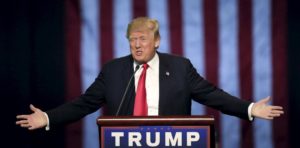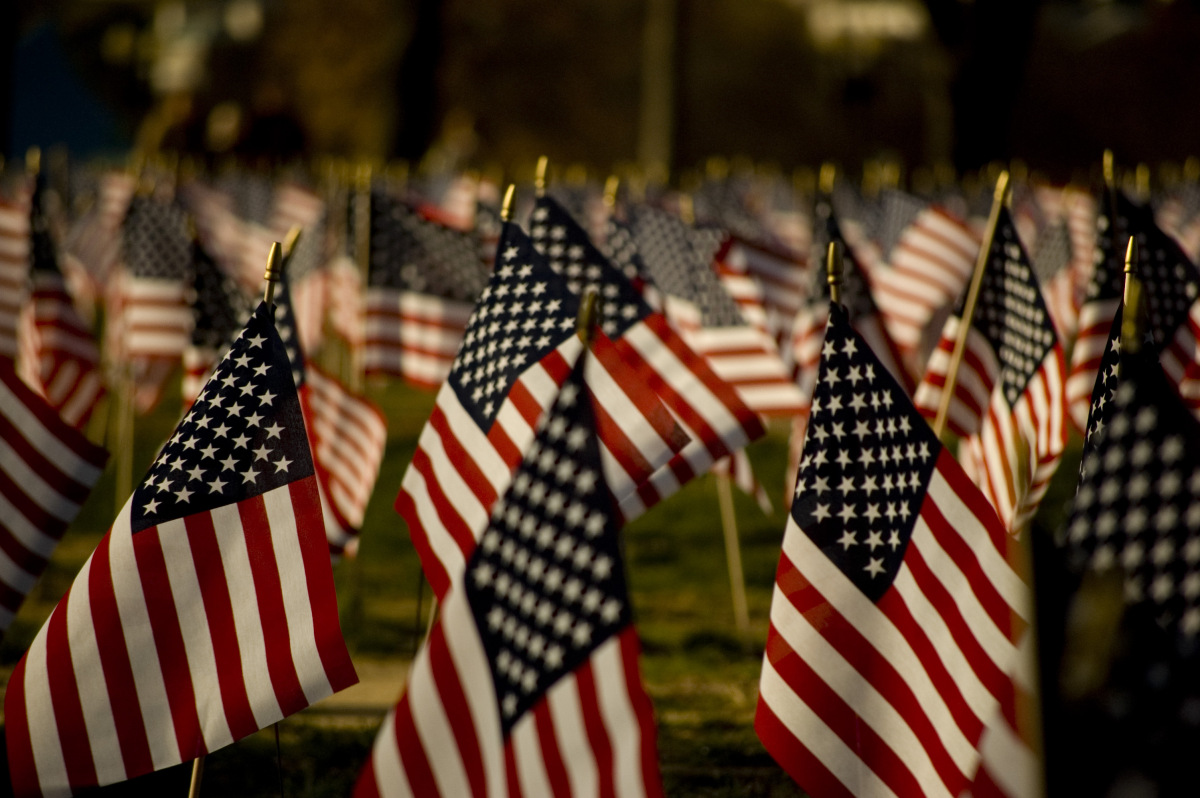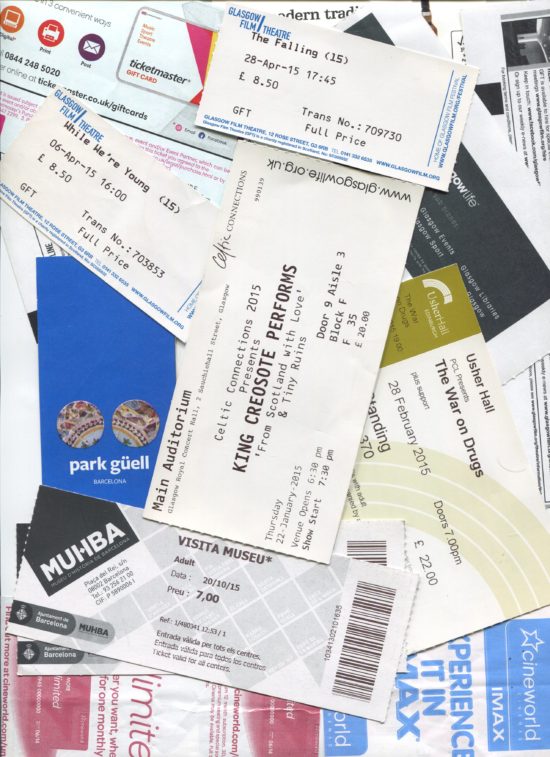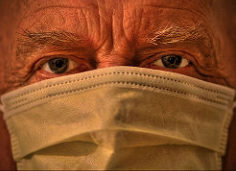You have no items in your cart. Want to get some nice things?
Go shopping Donald Trump said, “We will be doing very much better with Mexico on trade deals, believe me,” and Hillary Clinton remained composed, presidential. This was during the final 2016 Presidential debate, when two completely opposite figures battled it out. What struck me was not the general theatrics of the whole thing but Trump’s phrase, the words ‘believe me’.
Donald Trump said, “We will be doing very much better with Mexico on trade deals, believe me,” and Hillary Clinton remained composed, presidential. This was during the final 2016 Presidential debate, when two completely opposite figures battled it out. What struck me was not the general theatrics of the whole thing but Trump’s phrase, the words ‘believe me’.
There’s the obvious hypocrisy. Donal Trump is a liar. There was a fantastic article written by the New York Times, listing each lie Trump told during the second presidential debate. He lies about his past actions, he lies about things he said fifteen minutes prior, he contradicts himself, he’s a hypocrite, a sexist, a racist, a brute. But it’s not just Trump that got me thinking about belief – it was politics as a whole. Here, men and women stand up and proclaim reasons for them to be trusted, for us to believe in them. It’s we that vote. We that put these people in their positions but do we really believe them? Can we ever really believe in them?
We like to think we have control because it’s us that elects the politicians but it’s taking the lock off the lion’s cage. Our vote heightens these people, elevates them. They are in positions of power where our voices become quieter, distant. Trump is running on the fact that he is out of the establishment, he’s just a businessman – a multibillion businessman – wanting to fix his country. Clinton, he proclaims, is part of the establishment – she’s out of touch. He’s right about one thing – the establishment is out of touch. This is not to say if I were American I would vote for Trump, I’d rather see a Clinton administration than the alternate but the establishment, the politicians so far out from their people. Politicians in the UK, sit in great halls and scream and jeer at one another, mock publicly, laugh off the stage, humiliate not just themselves but us. They show what money and power can create – the ignorance, entitlement and privilege of it – as well as the vast barrier between them and us.
*
Would you believe the word of a stranger if he or she told you your loyalty would create great change? If they stood and needed your dedication and help to become your leader so they could speak on your behalf, would you believe them? Would you believe the word of the stranger if they demanded money – we’ll call them taxes – from your purse to go into the big bank for them to decide who it can help best? Would you believe them if they said they pay taxes too, more, because they’re now better off?
Lies are a key part of politics. You have to go with the crowd sometimes, you have to keep the most people happy. When you’re running for a cabinet position lies can come a bit more easily. It’s easy to make promises you know you can’t keep, it’s also easier to not call them lies then, they were simply mistakes.
One only need to cast their mind back to the 23rd June referendum vote, when 51.9% of the UK voted to leave the European Union. Among the Leave campaigners were Nigel Farage and Boris Johnson who promised £350 million to go to the NHS. This was the biggest lie of the Brexit campaign, arguably one of the biggest lies spread and encouraged in British political history.
We know it’s a lie, from the reports of Theresa May’s budget, no further money actually going to the NHS and that no Leave politician will comment on what actually happened to the pledge to the British people. They ask us to believe them and of the 51.9% I’m sure some of those people didn’t buy it and voted for other reasons but what the build-up to the vote showed me was that the country was in a state of confusion. Everyone around me was arguing about it, questioning things. The news was full of lies disguised as promises, the world seemed to be blowing up, we needed to have control – that’s what leaving offered, they said, control.
I guess it’s true – we shouldn’t trust strangers.
*
What, then, do we believe in? Or rather – what can we do when there is no-one to believe in?
Because with belief comes trust. Somebody asking you to believe them is also asking you to trust them. You can be a fool – or look like a fool – if you follow a liar in blind loyalty. Nobody wants to look foolish. And yet we put our trust in people who time and time again disappoint us, who go against their own words and promises.
Hypocrisy is a fact of life, as are lies. Everyone lies and everybody can be a hypocrite but not everybody wants to be that voice – the person standing up representing everyone else. Most people want to just be part of the crowd where their lies, secrets and hypocrisies are not easily seen. The fact of the matter is politicians are heavily scrutinised and judged because there’s a sense of ownership – we put them there and we deserve to know what’s going on. Because they want their power, wealth, sense of dominance, place in the hierarchy, to be that one per cent. It all comes with a price. Both for them and for us.
There are figures like Trump who challenge the establishment. Part of me thinks that Trump is doing it to truly mock the establishment – even if he doesn’t win, he’s made enough people believe him and they will be left angry and frustrated with a President Clinton. He’s given the white-collar conservative attitudes a voice where the second amendment is not just a constitutional right but at the heart of the American Dream. There’s an American truth no Presidential campaign will say if they want to win: the second amendment is a farce. Scrap it. Lock up the guns. Save your children.
Sometimes they’d have us believe that in order to win you have to tell a few lies, make a few half-thought-out promises and let a few people down. But when they win that’s when they’ll really make that difference they’ve been talking about, they’ve asked for your vote and trust and loyalty, they’ve asked you to believe them.
So do you?
Believe?

About Thomas Stewart
Thomas Stewart's fiction, essays and poems have been featured in The Cadaverine, Ink, Sweat and Tears, The Stockholm Review, Agenda Broadsheet, Flight Journal, The Fat Damsel, Lies, Dreaming, Anomaly, among others. His debut poetry pamphlet, 'Creation' is forthcoming by Red Squirrel Press. He has an MA in Writing from Warwick and a BA in English from South Wales. He enjoys folk music and is afraid of the dark. He can be found on Twitter at ThomasStewart08.




